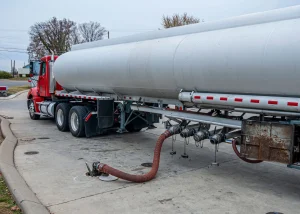In the world of diesel engine maintenance, diesel fuel additives have become an indispensable tool for optimizing engine performance and longevity. As a trusted provider of both on-road and off-road diesel fuel solutions, Ace Fueling understands the critical role these additives play in maintaining your fleet’s efficiency and reliability.
Why Your Diesel Engine Needs Additives
Modern diesel engines are precision machines that require careful maintenance to perform at their best. While standard diesel fuel meets basic requirements, the addition of high-quality diesel fuel additives can significantly improve diesel fuel performance and protect your investment. These specialized formulations address common issues that fleet owners and operators face daily.
The Science Behind Diesel Fuel Additives
Diesel fuel additives are carefully engineered chemical compounds that enhance fuel properties in several ways:
Cetane Number Enhancement
One of the primary benefits of diesel additives is their ability to increase the fuel’s cetane number. A higher cetane number means better ignition quality, resulting in:
- Smoother engine operation
- Reduced cold start issues
- Improved fuel economy
- Lower emissions
Cleaning and Protection
Modern diesel fuel additives contain detergents that clean and protect vital engine components:
- Remove deposits from fuel injectors
- Prevent carbon buildup
- Clean fuel lines and tanks
- Protect against corrosion
Key Benefits of Using Quality Diesel Additives
Enhanced Engine Performance
When you incorporate diesel fuel additives into your maintenance routine, you can expect:
- Improved fuel atomization
- Better combustion efficiency
- Reduced engine wear
- Enhanced power output
Extended Engine Life
Regular use of quality additives contributes to longer engine life by:
- Preventing injector deposits
- Reducing friction
- Protecting against wear
- Maintaining optimal compression
Cold Weather Protection
In regions with harsh winters, diesel fuel additives provide crucial cold-weather benefits:
- Prevent fuel gelling
- Lower the fuel’s pour point
- Reduce starting problems
- Maintain fuel flow in cold conditions
Types of Diesel Fuel Additives
All-in-One Solutions
These comprehensive formulations typically include:
- Cetane improvers
- Detergents
- Lubricants
- Anti-gel compounds
- Corrosion inhibitors
Specific Purpose Additives
Some additives target specific issues:
- Water dispersants
- Biocides
- Cold flow improvers
- Cetane boosters
How to Choose the Right Diesel Fuel Additives
When selecting additives to improve diesel fuel performance, consider:
Quality and Compatibility
- Choose additives from reputable manufacturers
- Ensure compatibility with your engine type
- Verify compliance with OEM specifications
- Check for appropriate certifications
Specific Needs
- Consider your operating conditions
- Evaluate your maintenance history
- Assess common problems you’ve encountered
- Factor in seasonal requirements
Best Practices for Using Diesel Additives
Proper Application
To maximize the benefits of diesel additives:
- Follow manufacturer dosing recommendations
- Add products at the correct time
- Maintain consistent treatment schedules
- Monitor engine performance
Maintenance Integration
Incorporate additives into your broader diesel maintenance strategy:
- Regular fuel system inspections
- Scheduled filter changes
- Fuel quality monitoring
- Performance tracking
The Role of Professional Fuel Services
Working with a professional fuel service provider like Ace Fueling ensures:
- Access to high-quality fuel products
- Expert guidance on additive selection
- Consistent fuel quality
- Reliable delivery services
Environmental Considerations
Modern diesel fuel additives contribute to environmental sustainability by:
- Reducing emissions
- Improving fuel efficiency
- Decreasing carbon footprint
- Supporting cleaner engine operation
Cost-Benefit Analysis
While diesel fuel additives represent an additional expense, their benefits typically outweigh the costs:
- Reduced maintenance expenses
- Improved fuel economy
- Extended engine life
- Fewer repairs and downtime
Conclusion
Understanding and properly utilizing diesel fuel additives is crucial for maintaining optimal engine performance and longevity. As your trusted fuel partner, Ace Fueling is committed to helping you make informed decisions about fuel additives and maintenance practices. With over six years of experience serving the Bucks County area and beyond, we provide not just high-quality fuel products but also the expertise needed to keep your fleet running efficiently.
For professional guidance on diesel fuel additives and to learn more about our comprehensive fuel solutions, contact Ace Fueling today. Our team is ready to help you implement an effective fuel maintenance strategy that meets your specific needs and operational requirements.





